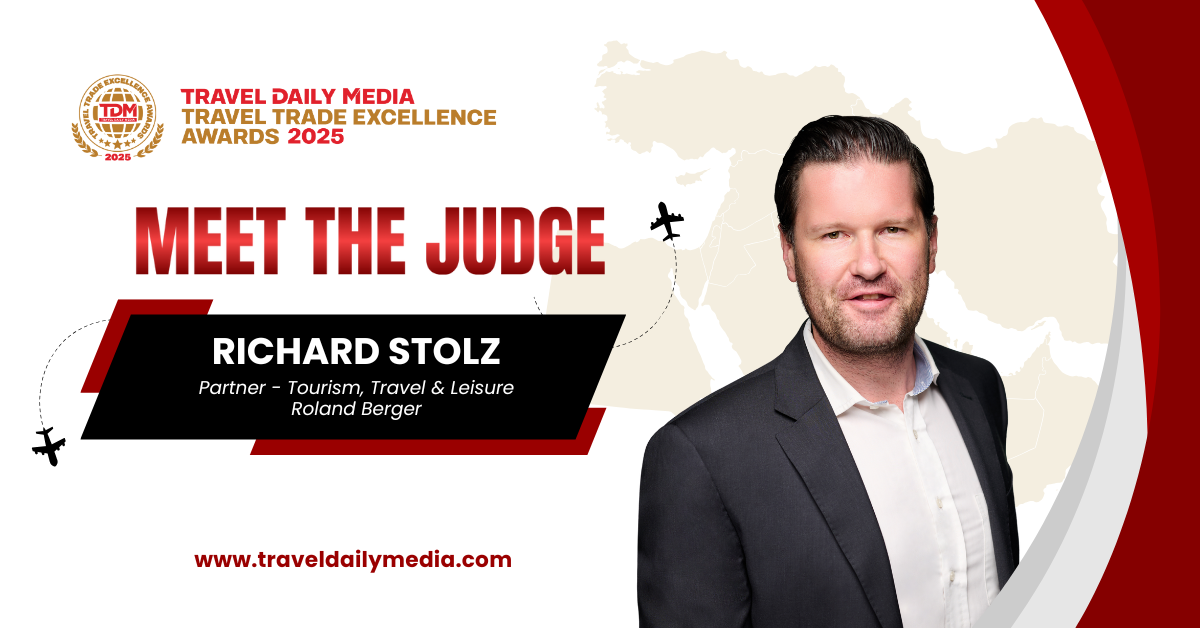The Transition in Middle Eastern Tourism
The Middle East stands at the precipice of becoming a premier global travel destination, grappling with rapid shifts in traveler expectations, market dynamics, and intensifying competition. Industry experts emphasize that for businesses in tourism, success hinges not just on operational excellence, but on strategic foresight and the ability to adapt swiftly.
Insights from an Expert
Richard Stolz, a Partner at Roland Berger specializing in Tourism, Travel, and Leisure, shares key insights from his extensive experience – over 14 years in strategic consulting. He has engaged with diverse sectors, including tourism, aviation, hospitality, and education, focusing on business growth and market entry strategy.
Residing in Dubai, Stolz’s background includes corporate strategy, market assessment, and project management. He regularly contributes to notable publications, enhancing discussions on global tourism trends.
Market Dynamics in the Region
In a recent dialogue, Stolz offered his views on how the Middle Eastern tourism sector is evolving. Highlighting a steady influx of visitors, particularly in key cities like Dubai and Abu Dhabi, he noted the increased significance of source market volumes from regions including the CIS, the Indian Subcontinent, and Mainland China.
Stolz advocates for an integrated approach among all tourism stakeholders—airports, airlines, ground transport, hotels, and Destination Management Companies (DMCs)—to ensure a compelling traveler experience.
Tailoring Experiences to Shifting Demographics
Adapting to changing source markets and traveler expectations is paramount. Stolz suggests that businesses must customize their offerings, which might include multilingual signage, diverse food and beverage options, and ensuring availability of guides fluent in languages like Mandarin. Moreover, he encourages DMCs to introduce packaged tours specifically in prime source markets.
Addressing the Talent Crunch
The tourism and hospitality sector faces considerable challenges in attracting and retaining skilled talent. Stolz stresses the necessity of promoting a healthy work-life balance to keep talent engaged. He calls for the implementation of appealing development schemes and strong partnerships with leading tourism and hospitality schools both locally and internationally to cultivate motivated professionals.
Innovation continues to reshape the industry. Yet, Stolz emphasizes that organizational agility must be coupled with a human touch. He believes fostering genuine, motivated teams remains essential for sustainable success.
Future Trends in Middle Eastern Tourism
Projecting into the future, Stolz identifies several key trends that could redefine the region’s tourism landscape. These include longer average stays, with destinations like Dubai and Abu Dhabi emerging as attractive options for not only vacations but potential long-term residency. Additionally, new destinations across Saudi Arabia are poised to broaden the Gulf Cooperation Council’s (GCC) tourism appeal significantly.
Acknowledging Industry Excellence
In addition to his consulting work, Stolz is set to judge the TDM Travel Trade Excellence Awards 2025 – Middle East. He emphasizes the need to recognize organizations consistently delivering best-in-class traveler experiences and setting high industry benchmarks.
Historical Context of Tourism in the Region
The history of tourism in the Middle East has been quite dynamic. Traditionally, the region attracted visitors for its rich historical and cultural tapestry, as well as religious pilgrimage sites. Over the years, cities such as Beirut, Cairo, and Jerusalem have drawn tourists intrigued by their unique heritages. However, the advent of modern developments and luxury offerings has allowed cities like Dubai to shift tourism towards a premium luxury experience, blending traditional allure with contemporary hospitality.
As the region capitalizes on its historical significance, the strategic direction now focuses on merging these historic elements with modern capabilities, such as advanced infrastructure and hospitality services. The evolving profile of travelers—who now lean towards experiences encompassing culture, adventure, and luxury—promises to reshape tourism’s future direction.
Anticipating the Impact on Global Tourism
The implications of these developments extend beyond the regional borders. The Middle East’s diversification into luxury tourism and experiential offerings promises to attract a wider international audience, enriching the global tourism landscape. Emerging markets will continue to be pivotal, as they dictate new trends and expectations in travel.
As the Middle Eastern tourism scene continues to adapt and evolve, it stands to become one of the leading lights in international tourism, enticing global travelers with its unique offerings and experiences.
For travelers looking to explore new regions, GetBoat (GetBoat.com) stands ready to provide an easy way to rent sailing boats and yachts, ensuring the perfect water-based experience to complement any adventure. With a growing focus on leisure opportunities such as sailing and yachting, GetBoat exemplifies how maritime experiences are integral to enhancing tourism in the Middle East and beyond.


